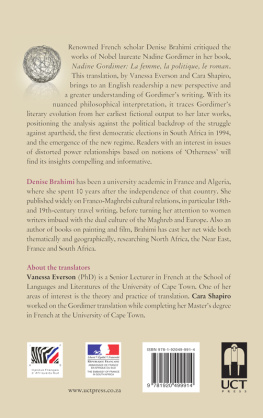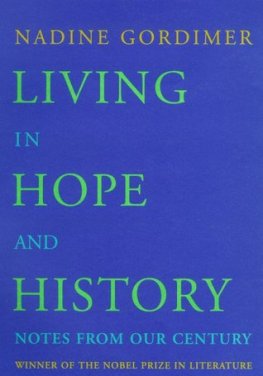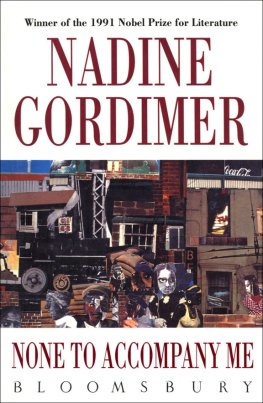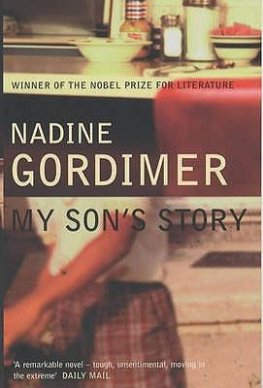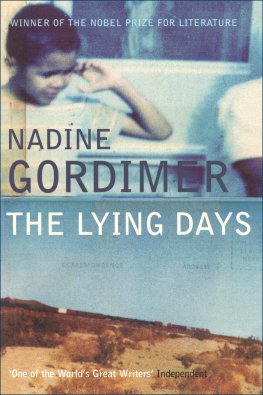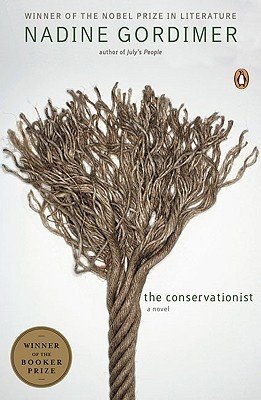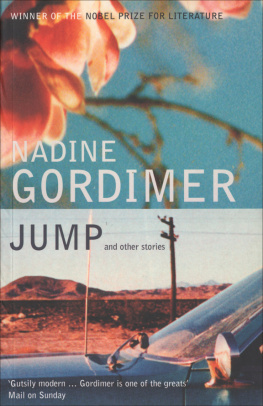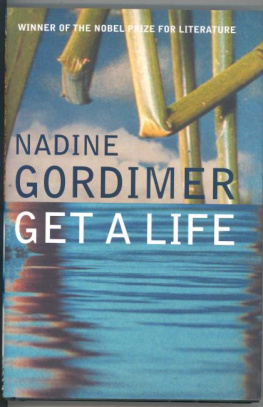NADINE GORDIMER
Weaving together fiction, women
and politics
Denise Brahimi
Nadine Gordimer
Weaving together fiction, women
and politics
Translated from the French by
Vanessa Everson and Cara Shapiro

Nadine Gordimer Weaving together fiction, women and politics
by Denise Brahimi
First published in 2012 by UCT Press
an imprint of Juta and Company Ltd, First floor, Sunclare Building
21 Dreyer Street, Claremont 7708, Cape Town, South Africa
www.uctpress.co.za
2012 translation by Vanessa Everson and Cara Shapiro
Originally published by IFAS/Editions Karthala as Nadine Gordimer:
La femme, la politique et le roman
ISBN: 978-1-92049-991-4 (Parent)
ISBN: 978-1-92051-650-5 (EPUB)
All rights reserved. No part of this publication may be reproduced or transmitted in any form or by any means, electronic or mechanical, including photocopying, recording, or any information storage or retrieval system, without prior permission in writing from the publisher. Subject to any applicable licensing terms and conditions in the case of electronically supplied publications, a person may engage in fair dealing with a copy of this publication for his or her personal or private use, or his or her research or private study. See Section 12(1)(a) of the Copyright Act 98 of 1978.
Project manager: Alfred LeMaitre
Typesetter: Nazli Jacobs
Cover designer: Marius Roux
Indexer: Ethn Clarke
Converted by BookGenie, India
The authors and the publisher have made every effort to obtain permission for and to acknowledge the use of copyright material. Should any infringement of copyright have occurred, please contact the publisher, and every effort will be made to rectify omissions or errors in the event of a reprint or new edition.
Acknowledgements
H eartfelt thanks go to Denise Brahimi for her confidence in entrusting us with the task of translating into English her original French text, Dibuka for their faith in and financial funding of the translation, and IFAS for their financial support for the production of this book. We thank the Postgraduate Funding Office of the University of Cape Town for supporting so generously the research that underpinned the project. Finally, we express our deep gratitude to Wilhelm Snyman, academic and journalist, for his critical reading of this translation.
This book was published with the support of the Embassy of France in South Africa.
Preamble
Ny a-t-il pas un autre endroit o nous pourrions nous rencontrer?
Is there nowhere else we can meet?
T here is something essentially satisfactory about symmetry. In 1995, the French Institute of South Africa (IFAS) opened its doors in Newtown, the cultural hub of Johannesburg. Some five years later, diversifying from its regular publication of the Newtown Zebra, it published a work of literary criticism in co-operation with Karthala Editions. Of course, this venture fell within the avowed mission of the Institute to foster French scholarship in South and southern Africa. The publication was the work of the prolific French academic, Denise Brahimi. Professor at Paris VII and visiting professor at the Winthrop-King Institute for Contemporary French and Francophone Studies of Florida State University, she is the author of books and innumerable academic articles. Written in French, the study dealt with a quintessentially South African topic the writings of Nadine Gordimer. Just five years after that, this time in the Johannesburg suburb of Parkview, the French Information Centre, Dibuka, dependent, as is IFAS, on the French Ministry of Foreign Affairs, took the decision to fund the publication of the English translation of Brahimis work. The reason behind this decision was the desire to increase access to research done in French on a South African topic.
Denise Brahimis choice of subject matter is easily explained. Along with Breyten Breytenbach, Andr Brink and J.M. Coetzee, Nadine Gordimer was already well known in France as one of the White Quartet. The award in 1991 of the Nobel Prize for Literature had cemented her literary reputation. Indeed, the majority of the Nobel laureates writings were available in French translation. However, as Brahimi is at pains to point out in her analysis of Gordimer, academic scholarship in French on this first South African Nobel laureate extended little beyond Liliane Louvels 1994 study. Brahimi found in Gordimers creative output ideal subject matter.
Given the abundance of scholarship written in English on Gordimer, what is the particular interest of a French study that, within an African context, the very act of translation serves to combat linguistic divisions and to nourish diversity simply by having increased potential readership.
With a certain (at times nave) immediacy born of relative unfamiliarity with the South African situation, Denise Brahimi launches fearlessly into an analysis of Gordimers writings. Anticipating by several years Ronald Suresh Roberts in his controversial biography No Cold Kitchen, Brahimi sets Gordimer apart as an activist who places her commitment to art above politics and for whom it would quite simply have been unthinkable to have thought otherwise. Brahimi sees Gordimer as a true partisan of the liberation struggle who cannot be criticised for not having supported full franchise for the black majority of the South African population, a reproach that has been levelled at some of her liberal counterparts. By eschewing all historical pedantry, Brahimi is able to set Gordimers writings against the unfolding drama of South African politics. Whilst acknowledging that, at certain stages of her life, there are strong parallels between Gordimers personal life and her fictional creation, Brahimi respects her subjects right to privacy, asserting furthermore that to adopt a purely biographical approach would be to limit the true scope of Gordimers writing.
In a text that makes explicit reference to Gordimers avowed literary loves and influences (several of which are French the reader is shown an author who moves between life and art, external and imagined realities, the personal and the political. Brahimis interrogation of the coexistence of these opposites is all the more apposite because the texts that she analyses coincide with an important period: 1980 to 1995. During this time, the concepts of womanism, African feminism, critical third-world feminism, black feminism and postcolonial feminism were being debated and defined, and were significant for consolidating African feminist scholarship and for focusing on the nexus of gender, power and race.
Brahimi shows us that for Gordimer the struggle is never far away, as her characters are pulled and shaped by intricate political forces. And yet they emerge as complex, flesh-and-blood individuals who, like Rosa or Vera for example, wrestle with their own personal dilemmas. The analysis ends with The House Gun but ably anticipates the direction that the South African author was to take. The inference is that we are dealing here with works of the imagination that go beyond the confines of a moment in history, however momentous that history may be, and that here is an author who is able to illumine human existence at some deeper level, much like Camus or Sartre. Overarching all this, there is the construct of the existential imperative of the writers mission to continue writing. It is in this light, then, that the present work is a reflection of intercontinental scholarship and collaboration, of translation as a remedy for linguistic division and a means of encouraging cultural diversity. This is surely a place where we can all meet.
Next page
